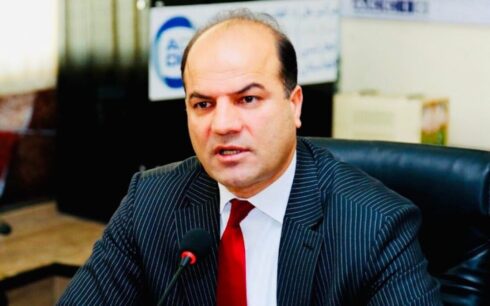Countries including Canada, Australia, Germany, and the Netherlands are calling for the Taliban to be tried at the International Criminal Court or the International Court of Justice for their extensive human rights abuses, particularly those targeting women. These nations, underscoring the Taliban’s systematic violations of women’s rights, have proposed using the Convention on the Elimination of All Forms of Discrimination Against Women (CEDAW) to hold the Taliban accountable. This call has reached the United Nations General Assembly, and if diplomatic avenues fail, the case may proceed to the Hague.
CEDAW, adopted by the U.N. General Assembly in 1979 and enforced by 1981, aims to combat gender discrimination across all spheres of life. Member nations are obligated to take both legal and practical measures to end gender discrimination, ensuring women’s equal rights in social, economic, cultural, political, and civil realms. The ICJ, headquartered in The Hague, is empowered to review complaints of CEDAW violations against accused states. Although compliance depends on the cooperation of nations involved, the ICJ can hear claims, evaluate evidence, and issue binding rulings.
The push for international legal action underscores a broader concern for Afghan women, who lack an official body to represent their interests. Afghanistan’s judicial institutions, including the office of the public prosecutor, are effectively under Taliban control and do not operate independently. With millions of Afghans, including many women, having fled the country due to the Taliban’s repressive policies, those who remain are left without a representative body to advocate for their rights within Afghanistan.
Baheddin Baha, who served as acting Chief Justice of Afghanistan’s Supreme Court under the former republic, argues that Afghanistan remains accountable to international law despite its political upheaval. As a longstanding member of the United Nations, Afghanistan has adopted international treaties, including human rights conventions, which belong to the Afghan people rather than any transient ruling power. In his view, the current Taliban regime’s refusal to recognize these rights is a fundamental reason why they have not been granted formal international recognition.
He adds, “Human rights are a universal principle, and Afghan law embraces women’s right to education and employment, which are also central to international legal norms. There is no inherent contradiction between Islam and the civil rights of women.”
The ICC has jurisdiction over matters involving crimes against humanity, war crimes, and genocide, and it is not limited to inter-state disputes. It can also handle complaints from individuals and groups whose rights have been violated. Given that the Taliban now seek to participate in global diplomatic forums and even claim Afghanistan’s seat at the United Nations, they cannot feign ignorance of international human rights standards. The Taliban’s actions have drawn condemnation for systematically undermining these very norms, especially regarding women’s rights.
The lack of international recognition for the Taliban is due, in no small part, to their regressive policies that directly contradict their previous commitment to human rights under Afghan law. Many legal experts in Afghanistan see these principles as belonging to the Afghan people and as vital tools for holding the Taliban accountable. As Baha noted, “Human rights laws and institutions were created to protect individuals everywhere. Now, the international community must use these tools to defend the rights of Afghans.”
The motivation behind these nations’ efforts to pursue legal action at the Hague is rooted in solidarity with the Afghan people, who currently have limited means to advocate for themselves. Afghanistan’s population includes millions who cannot return due to their refusal to accept Taliban rule. The World Bank estimates that women account for approximately 49.5 percent of Afghanistan’s 43 million citizens. Since the Taliban’s return to power, about 12 million Afghans—approximately 28 percent of the total population—have reportedly fled the country, with millions more internally displaced.
According to Baha, Afghanistan’s society is effectively divided into three distinct groups: women, men, and migrants. With 12 million Afghans outside the country and a further 21.24 million women within, the majority of the Afghan populace stands in opposition to the Taliban. The Taliban’s repressive tactics have effectively alienated half the country’s population, yet they continue to claim these issues are “internal matters” that do not concern other nations.
The Taliban’s hypocrisy is evident: they assert their right to Afghanistan’s U.N. seat and demand representation on the global stage, while simultaneously silencing dissent at home and refusing to grant women basic civil rights. By obstructing the democratic process, the Taliban deny the Afghan people the opportunity to have their voices heard. Should a referendum under U.N. supervision be held, it is likely that the majority of the population—especially women—would reject Taliban rule.
During their insurgency, the Taliban frequently targeted Afghan civilians, often in brutal attacks that aimed to prevent the exercise of democratic rights. In their current campaign for international legitimacy, they are exploiting the absence of many of Afghanistan’s political elites and scholars, who have either been driven into exile or silenced. But the Afghan people have not forgotten, and they will demand justice for decades of bloodshed and human suffering.
Afghanistan’s educated and resilient population has a long memory. Despite the Taliban’s efforts to isolate the nation, Afghans continue to seek ways to connect with the world, demanding accountability and justice. If the international community fails to bring the Taliban to justice now, future generations of Afghans will likely pursue them for their actions, holding them accountable for the suffering inflicted on their people.
In this struggle for Afghanistan’s future, the international community must uphold its commitment to human rights, recognizing that these principles are not merely abstract ideals but essential protections for the Afghan people. As the saying goes, “A reign based on tyranny cannot last.” The Taliban’s grip on power is tenuous, as the world watches and waits for the day when Afghanistan’s people will reclaim their rights and rebuild their nation.
Mohammad Afzali holds a Ph.D. from Delhi University and has served as a professor at Herat University and a diplomat with Afghanistan’s Ministry of Foreign Affairs. He is the author of several books on literature and history and has translated numerous works from English to Persian.
The views expressed in this article are those of the author and do not necessarily reflect the views of Amu.





